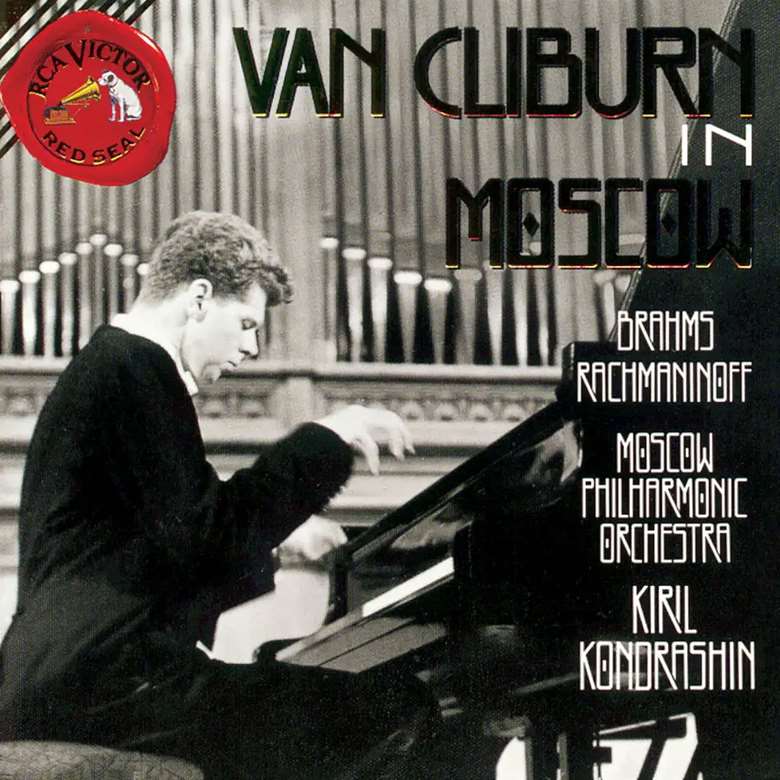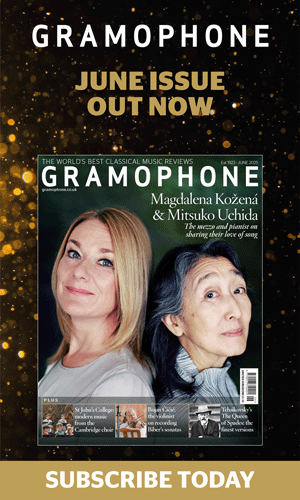Jed Distler's Cliburn Blog No 7: Van Cliburn the pianist
Jed Distler
Wednesday, May 28, 2025
A rest day in the competition gives Jed Distler time to reflect on Van Cliburn – American icon, cultural ambassador, and formidably gifted pianist

Over the course of the competition founded in his name in 1962, Van Cliburn’s presence loomed large up until his death on February 27, 2013. His advice and encouragement inspired generations of competitors who got to meet him. Yet Cliburn’s stature as an American icon and cultural ambassador still overshadows the formidable pianistic gifts that earned him international accolades. So as we gear up for the Semi-finals, I thought we could take a quick browse through some of Cliburn’s recorded legacy.
The story of his victory in the 1958 Tchaikovsky Competition, at the height of the Cold War, is the stuff of legends. Basically, Cliburn returned home from Moscow as an American folk hero and overnight superstar. RCA Victor quickly signed the 23-year-old pianist to an exclusive contract. His RCA debut recording of Tchaikovsky’s Piano Concerto No 1 shot to the top of the charts and has never gone out of print. It remains a noble, aristocratic reading – quite different from the febrile, edge-of-seat traversals from Horowitz and Argerich. For further details, read the Classics Reconsidered feature in the April 2014 issue of Gramophone, where Jeremy Nicholas and I revisited this best-seller.
Similarly, the unhurried lyrical attitude prevailing throughout much of Cliburn’s 1958 account of Rachmaninov’s Third Concerto lies at opposite end of the Horowitz/Argerich axis. I believe that Cliburn’s was the first commercial recording of the heavier, thicker alternative first-movement cadenza. MacDowell’s Second Concerto stands out among Cliburn’s other RCA concerto recordings for freshness and scintillation. I’ve always found his Brahms Second with Fritz Reiner and the Chicago Symphony relatively careful next to the far more dynamic and emotionally generous live Moscow 1972 performance with Kondrashin, which RCA issued in the early 1990s.
My favorite Cliburn RCA solo recordings include a meaty Liszt Sonata in the grand manner, a big-boned and statuesque Barber Sonata, the impassioned live version of Rachmaninov’s Second Sonata, plus a stylish and technically immaculate Beethoven Les adieux Sonata. However, Cliburn’s communicative gifts came across with more excitement and immediacy in concert.
Fortunately, a good number of his Russian concerts were recorded and released by Melodiya. From Testament, we have Cliburn’s marvellous June 7, 1959 Royal Festival Hall recital, featuring a vibrant Beethoven Appassionata and one of the finest accounts of Liszt’s Hungarian Rhapsody No 12 ever captured on a recording. Back-tracking to Moscow 1958, Testament also released Cliburn’s live final round performances of the Tchaikovsky First and Rachmaninov Third Concertos. Despite iffy sonics and an undernourished (though spirited) orchestra, Cliburn proves far more exciting here than in the later RCA versions. He also tosses off Kabalevsky’s Rondo (written for the competition) as if improvising the piece on the spot; indeed, few have played it better.
Now here’s the big question: If we could resurrect the 23-year-old Van Cliburn to participate in the competition named in his honour, how would he fare alongside this year’s abundantly gifted contestants?
Gramophone is a Media Partner of The Cliburn International Piano Competition














